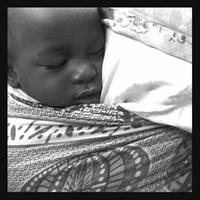KENYA: Breast is best, even for mothers with HIV

The risk of an HIV-positive mother infecting her child through breastfeeding can be significantly reduced by antiretroviral treatment (ART), say health officials in Kenya.
"HIV-positive mothers on ART lower the risk of transmission through breastfeeding from 20 [percent] to five percent," said Linda Beyer, an official in charge of Nutrition and HIV/AIDS at the UN Children's Fund (UNICEF).
In developing countries the nutritional and other health benefits of breastfeeding over formula feeding have generally been thought to outweigh the risks of HIV infection. Recent clinical trials have found that putting nursing HIV-positive mothers on ART can suppress viral load and minimise the chances of transmission.
"Breastfeeding for the first six months of a child's life reduces up to 13 percent of under-five deaths," Beyer said at the start of World Breastfeeding Week on 1 August.
According to the World Health Organisation, every year 10 million children younger than five die worldwide, often as a result of malnutrition.
Beyer said that promoting breastfeeding was vital to achieving the Millennium Development Goal of a two-thirds reduction in childhood mortality rates by 2015.
Terry Wefwafwa, an official in Kenya's ministry of health, said her department was already providing ART to breastfeeding HIV-positive mothers through its prevention of mother-to-child transmission [PMTCT] programme. "They are available at all health facilities for the women at no cost," she told IRIN/PlusNews.
HIV-positive mothers should stop breastfeeding their babies after six months and introduce other foods, Wefwafwa said. She also warned that there was a risk of infection if other foods and liquids were mixed with breast milk before the baby was six months old.
The world breast week campaign will be used as a platform to sensitise the public to the importance of breastfeeding.
 Back and Next - Back and Next
Back and Next - Back and Next See Also - See Also
See Also - See Also